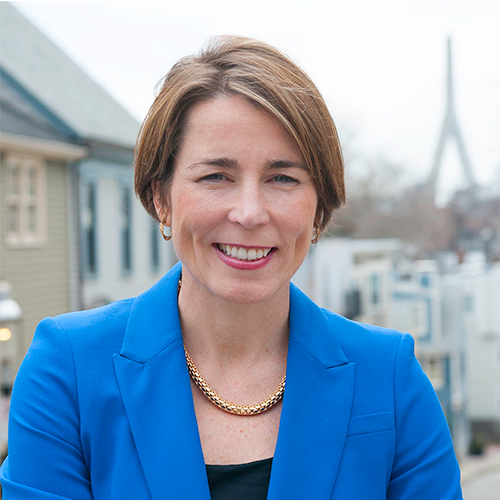
Maura Healey ’98
Governor, Commonwealth of Massachusetts, Boston
Read My Story
Northeastern is renowned as one of the top public interest law schools in the nation. We encourage, support and require our students to grapple with real social issues — dealing with the legal, intellectual and emotional demands of creating a just society.
Our public interest focus permeates virtually every class, where students and faculty regularly debate the ethical and societal implications of legal issues and decisions. The law school’s Center for Public Interest Advocacy and Collaboration (CPIAC) takes the lead in infusing the law school’s public interest mission into all facets of the student experience. Northeastern was also one of the first law schools to institute a public interest requirement — the majority of students eagerly fulfill this obligation through working with our public interest co-op employers.
Many students come to Northeastern for the chance to collaborate with faculty working on the forefront of legal change, from tackling public health legal issues to researching cold cases from the civil rights era. Make sure to watch our video — narrated by the legendary NAACP head Julian Bond — about the nationally recognized Civil Rights and Restorative Justice Project and check out the hands-on opportunities for you to participate in the critical work of our clinics and centers.
Beyond the classroom and co-ops, our student groups are heavily invested in social justice. From the Cooperative Income Sharing Program, through which students help one another fund public interest co-ops, to the Human Rights Caucus to our extremely active chapter of the National Lawyers Guild (and in so many other student-run groups as well), our students seek to make a difference in the lives of those who are too-often underrepresented in the justice system.
An unusual, possibly unique feature of institutional life at Northeastern University School of Law – reflecting the activist commitments of many students and faculty over the years – is our long tradition of student involvement in law school governance. Under the law school’s governance charter, students are entitled to voting representation on major law school committees, including the Appointments Committee. The charter creates additional procedural mechanisms to achieve communication and transparency in institutional governance consistent with applicable accreditation requirements, and it recognizes the Student Bar Association as the principal organizational framework for crystallizing and conveying student views to faculty and staff.
Whether or not you choose to pursue a career in public interest, your experience at Northeastern will help you become a better lawyer; you’ll have ability to evaluate legal issues through a social justice lens and make a positive difference for your clients, community and society.